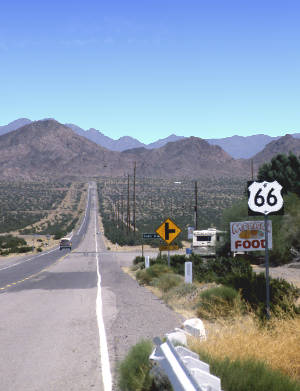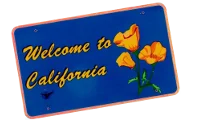
California Driving
Driving tips and rules of the road
About-California.com
- an essential introduction
- Explore California ►
- General information
- Places
to visit
- Los Angeles
- Hollywood
- San Francisco
- Sacramento
- The California coast
- Death valley
- Yosemite national park
- Bodie ghost town
- Other places to visit
- Things to do
- And other places
About-California.com
A beginner's guide to discovering California
A beginner's guide to discovering California
Driving tips and rules for California
- The minimum age for driving in California is 18, though young people from age 16 may drive with a provisional licence, under conditions.
- Speed limits : In urban areas the speed limit is 25 mph / 40 km/h, and on other roads it is generally 55 mph or 90 km/h. On multi-lane highways, including freeways and interstates, the general speed limit is 65 mph or 105 km/h .
- Drivers license : visitors from outside the USA can generally drive in California using their foreign driver's license, as long as their US tourist visa is valid (normally 3 months). If this drivers license is not in English, then drivers should also have an International Drivers Permit (IDP).
- Seatbelts : Drivers and all passengers in a vehicle must wear a seatbelt at all times.
- Mobile phones :The use of mobile phones for voice communication is illegal, except for fully hands-free devices.
- Text messages : It is illegal to write, send or read text messages while driving.
- Drinking and driving : It is illegal to drive with more than 0.08% of alcohol in the blood – which is more or less equivalent to the maximum permitted levels of blood alcohol in Australia, Canada and most of the European Union.
Visiting LA ?
A car (or dependency on taxis) is a must ! To drive from Burbank, in the north of LA, to Huntington Beach in the south, takes over an hour on the Interstate; and journey times from the coast to the eastern suburbs of LA take quite a bit longer than that. And apart from Hollywood stars and others who have the use of a private helicopter, everyone uses a car – which is why LA has so many multi-lane highways criss-crossing the urban area ; and why it has so many traffic jams, and often so much smog. Traveling between LA's major sites and tourist attractions - LAX airport, downtown, Hollywood, Universal Studios, Disneyland, Venice Beach, Long Beach, and other spots, is a process that takes time, and requires a car.Visiting California's fabulous natural heritage sites also requires a car, or a guided tour.
California scenic routes
But driving in California is not just driving on a multi-lane interstate with cars to the left and cars to the right. California also has two or three of the best road-trip routes in the USA, roads where traffic moves along at a leisurely, even very leisurely, rate, and visitors and tourists take time to admire the scenery.For those seeking a trip back in time, California is the destination end of historic Route 66, the Mother Road, that can still be followed for many miles through the California back country. Or up there in the hills, there are some amazing ghost towns to be discovered, like Bodie, once (for a few years) one of the wildest and most thriving gold-mining towns in the West, in the days when the West was wild.
For those more interested in fabulous and incredible landscapes, a trip north or south from San Francisco on the twisting and turning California Highway 1, which hugs the coastline all the way from San Luis Obispo north of LA, to Leggett, 150 miles north of San Francisco, is a must. So too are the unique landscapes of the Mojave Desert, including Death Valley and the intriguing Joshua Tree park, with its unique vegetation.
California Highway 1
Hôtels
throughout California
A great selection at best rates
from Booking.com
:

Monterey
area:

San Francisco
Yosemite
State-wide
The full length of Highway 1 is over 650 miles (over 1050 km), so driving the whole length is something that will take two to four days, depending on how much one stops to admire the views, walk on the beaches, visit the sights like the Monterey Aquarium, or just stop off for quality leisure time. Highway 1 is not a road for driving fast on; it is a single two-lane highway that twists and turns along the coastline – and definitely not the road to take if you want to get as fast as possible from LA to San Francisco.
US Highway 101
Highway 101 is the historic and furthest west of the north-south highways in the USA, running from near Seattle in the north, to LA in the south. Through the states of Washington and Oregon, the 101 is a small road that twists and turns as it follows the coastline. It continues to do so in the far north of California, from the Oregon border as far as Eureka, and again between San Luis Obispo and LA, offering fine views. In California the101 varies in nature between divided highway and single lane highway. Between Rockport and San Luis Obispo, while Highway 1 follows the coast, the 101 runs inland; to the north and the south of San Francisco, it is a major highway and indeed it is the principal northen route out of San Francisco, being the highway that crosses the Golden Gate bridge.US Route 66

Highway 66
Highway 66, the fabled "Mother road", is part of American history. Opened in the 1930s, it was the first designated highway linking Chicago, the hub of the midwest, with the California coast at Los Angeles. For many years now, most of the historic Route 66 has been decommissioned; traffic entering California from the east now mostly arrives on one of the transcontinental interstates I10, I40 or I70; but a few heritage-minded visitors still enter the state each year on what used to be US Route 66. Today's Interstate 40 more or less follows the old Route 66 across California from Needles, on the border with Arizona, to Santa Monica on the coast; while it's hard, if not impossible to imagine yourself back in time anywhere west of San Bernadino, from San Bernadino eastwards, leave Interstate 15 at Victorville and you can then follow the historic route, a designated historic trail, as far as the Arizona border - and beyond. Today, the surviving parts of old Route 66 probably have as much, or as little, traffic on them as they did back in the 1930s, when they were no more than a gritted track. The route takes you through places with evocative names such as Bagdad (little more than a palm tree standing beside the railroad tracks) and Siberia, reminders of how this part of the California desert can, even today, be scorchingly hot in summer and bitterly cold in winter.
Plenty of historic motels, garages and other memorabilia are there to remind the intrepid visitor of the historic legacy of Route 66, and its huge place in the history of California and the West in general.
These are just three of California's many scenic highways. There are plenty more, notably in the mountains and deserts of eastern California, in areas like Yosemite and Death Valley. With regard to desert routes, visitors are reminded that it is essential to take plenty of water with you in the car when driving in desert areas, specially in summer.
Toll routes in California
Most freeways and roads in California are toll-free. However there are a few short toll sections, notably for bridges. There are a number of toll routes in Orange county, south of Los Angeles, and there are tolls on bridges such as the Golden Gate bridge (toll only for southbound traffic) and bridges crossing San Francisco Bay (only westbound). For the San Francisco bridges, the principle is therefore simple. You pay to enter San Francisco - between $5 and $7.25 depending on the bridge; it's free to leave.Orange County can be crossed toll-free on the I-5.
About-California.com
Home
page
California
generally has the
highest gas (petrol) prices in the USA. This may come as a surprise for
visitors who imagine that California is the most car-friendly place in
the world. But while a car is essential to get round
California's sprawling cities or cross its large expanses of
countryside and desert, California's car-dependency has come at a cost
– notably the cost of urban pollution. Higher gas prices are there to
encourage Californians and visitors to use smaller more fuel-efficient
vehicles and contribute to a cleaner environment..
Visiting California by train ? No !
While parts of California have a good public transportation system, visitors planning a trip should not imagine that they can hop on a train in Los Angeles and get whisked up to San Francisco in three or four hours. The train journey is possible - one through train a day - but it takes 14 hours. California is a bit like Europe in many ways, but not yet as far as trains are concerned. A high-speed rail link from SF to LA is under consideration - indeed has been under consideration for many years ; but in the best scenario, it is unlikely to materialize before 2030 at the earliest.More
international driving guides
Driving in Quebec
- it's north America... but the signs are in French
Driving in France - all you need to know about driving in France
Driving in Spain - A guide to the highways and byways of Spain
Driving in Britain - A guide for visitors from other countries
Driving in Belgium - essential information.
Conduire en Angleterre - Prendre le volant en Angleterre et en Grande Bretagne
Photo top of page : Itsawab
Text and all other photos © About-California.com
Driving in France - all you need to know about driving in France
Driving in Spain - A guide to the highways and byways of Spain
Driving in Britain - A guide for visitors from other countries
Driving in Belgium - essential information.
Conduire en Angleterre - Prendre le volant en Angleterre et en Grande Bretagne
Photo top of page : Itsawab
Text and all other photos © About-California.com

